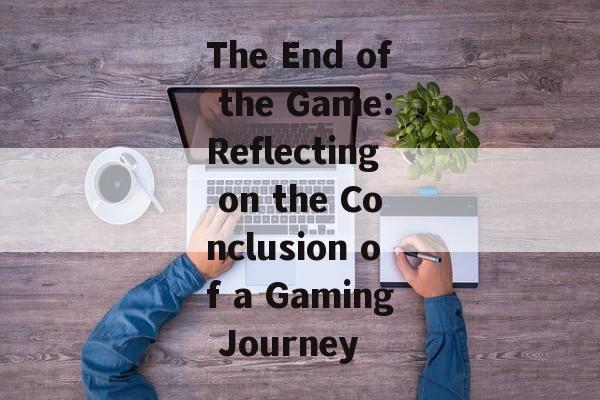The End of the Game:Reflecting on the Conclusion of a Gaming Journey
In the vast and ever-expanding world of gaming, there comes a moment when the screen fades to black, the music fades out, and the credits roll. This moment, often referred to as "the end of the game," marks the conclusion of an immersive journey filled with triumphs, challenges, and unforgettable experiences. This article delves into the significance of this pivotal moment and reflects on the various aspects that make up the end of a gaming adventure.
The Significance of the End
The end of a game is more than just a conclusion; it is a culmination of hours, days, or even weeks of dedication and effort. It is a moment of satisfaction and accomplishment, as players reflect on the progress they have made and the skills they have honed. The end of the game serves several purposes:
-
Closure: The end provides closure to the story and the gameplay, allowing players to fully grasp the outcome of their actions and decisions. It brings a sense of resolution to the narrative and leaves no loose ends.
-
Reward: Completing a game often comes with rewards, such as achievements, trophies, or in-game items. These rewards serve as a testament to the player's hard work and dedication, reinforcing the sense of achievement.
-
Reflection: The end of the game offers an opportunity for players to reflect on their experience. They can evaluate their performance, identify areas for improvement, and consider the impact the game had on them emotionally and intellectually.
The Emotional Journey
The emotional journey of a game's conclusion is often complex and multifaceted. Here are some common emotional responses players might experience:
-
Relief: After facing numerous challenges and setbacks, players often feel a sense of relief upon completing a game. The final boss battle, for instance, can be a source of immense tension, and overcoming it can be a relief.
-
Sadness: The end of a game can also bring about feelings of sadness, particularly if the game had a compelling story or strong emotional connections between characters. The separation from the game world and its inhabitants can evoke a sense of loss.
-
Pride: Completing a game can instill a great sense of pride, especially if it required overcoming significant obstacles or mastering complex mechanics. This pride can be a powerful motivator to tackle future challenges.
-
Curiosity: After experiencing the end of a game, players might feel a sense of curiosity about what comes next. They may wonder if there will be a sequel or if the game world will be revisited in some form.
The Art of Game Design
The way a game is designed can greatly influence the experience of its conclusion. Here are some key aspects of game design that contribute to the end of the game:
-
Storytelling: A well-crafted story can make the end of a game particularly memorable. The narrative should be engaging, with a clear arc that leads to a satisfying conclusion.

-
Gameplay: The gameplay should be challenging but not overwhelming, allowing players to feel accomplished when they complete the game. Balancing the difficulty is crucial to ensure that the end feels like a fair challenge.
-
Rewards: Offering meaningful rewards can enhance the sense of achievement at the end of the game. These rewards should be relevant to the game and its progression.
-
Emotional Impact: The emotional impact of the game's conclusion can be heightened by the design choices made throughout the game. The game world, characters, and music should all contribute to the emotional experience.
The Legacy of the Game
The end of a game is not just a personal experience; it also contributes to the legacy of the game itself. A successful game can inspire sequels, spin-offs, and a dedicated fanbase. The following aspects contribute to the legacy of a game:
-
Reviews and Reception: The critical reception of a game can greatly influence its success and legacy. Positive reviews and high scores can lead to a larger audience and more opportunities for future projects.
-
Community: A strong community of players can contribute to the longevity of a game's legacy. Online forums, social media groups, and dedicated fan websites can keep the game alive long after it has been released.
-
Impact: The impact of a game on culture and society can also contribute to its legacy. Games that tackle important social issues or offer unique perspectives can leave a lasting impression on players and the industry as a whole.
In conclusion, the end of the game is a momentous occasion that marks the culmination of a gaming journey. It is a time for reflection, celebration, and contemplation. The emotional journey, the art of game design, and the legacy of the game all play a role in making this moment memorable. Whether it is the end of a personal quest or the conclusion of a beloved series, the end of the game is a celebration of the shared experiences and the power of storytelling that brings us together in the virtual world.
相关文章

最新留言